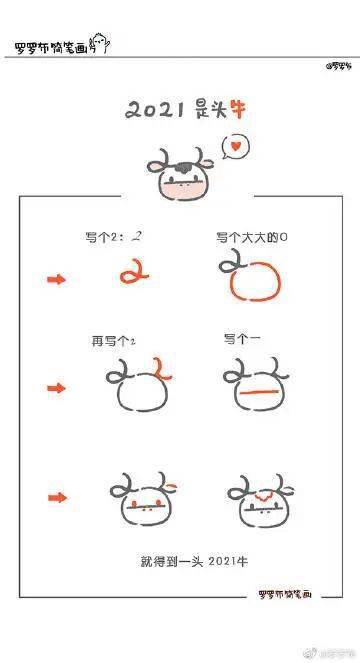如何让自己快乐 如何让自己快乐作文
怎样才能让自己更快乐?
Matt Killingsworth开发了一个应用程序,针对这个问题收集了一系列数据。「你的幸福足迹」网站,让受测者回报真实生活中的感受。结果令人惊讶:我们最投入的时刻,通常是最快乐的时候。反之,愈是胡思乱想,就愈不快乐。
附
中英互译
0:11
So, people want a lot of things out of life, but I think, more than anything else, they want happiness. Aristotle called happiness "the chief good," the end towards which all other things aim. According to this view, the reason we want a big house or a nice car or a good job isn't that these things are intrinsically valuable. It's that we expect them to bring us happiness.
众所周知,人类为了各种各样的理想而奋斗, 但是我认为,归根究底,他们要的是幸福。 亚里士多德把称幸福为“至高无上的精神享受,” 所有奋斗和追求的终极目标。 根据这个观点,我们之所以渴望一间大房子 或者一辆豪车 或者一个好工作 本质上来说,并不是因为这些东西对我们特别有价值。 而是因为我们期待这些财富能给我们带来 幸福。
0:41
Now in the last 50 years, we Americans have gotten a lot of the things that we want. We're richer. We live longer. We have access to technology that would have seemed like science fiction just a few years ago. The paradox of happiness is that even though the objective conditions of our lives have improved dramatically, we haven't actually gotten any happier.
在过去的50年里,我们美国人的物质生活 达到了前所未有的高度。我们更富有了。 平均寿命更长了。廉价而又实用的科技产品 使我们的生活看起来犹如科幻小说一般 仅仅是几年的功夫。 但是令人费解的是,虽然 客观上我们的物质生活水平有了极大的提高, 我们的幸福感却一点也没增加,
1:02
Maybe because these conventional notions of progress haven't delivered big benefits in terms of happiness, there's been an increased interest in recent years in happiness itself. People have been debating the causes of happiness for a really long time, in fact for thousands of years, but it seems like many of those debates remain unresolved. Well, as with many other domains in life, I think the scientific method has the potential to answer this question. In fact, in the last few years, there's been an explosion in research on happiness. For example, we've learned a lot about its demographics, how things like income and education, gender and marriage relate to it. But one of the puzzles this has revealed is that factors like these don't seem to have a particularly strong effect. Yes, it's better to make more money rather than less, or to graduate from college instead of dropping out, but the differences in happiness tend to be small.
展开全文
也许是因为这些传统意义上能增加幸福感的方法 其实对幸福感并没有什么大的影响, 近些年来越来越多的人对 幸福本身产生了浓厚的兴趣。 很长一段时间,大家都在争论到底是什么带给人类 幸福感,事实上这场争论已经持续了数千年之久, 但是看起来这些争论都没有令人信服的结果。 恩,如同生活中很多领域一样,我认为 科学研究是可以来回答这个问题的。 其实,在过去的数年里,对于幸福的研究 有了一些突破性的进展。比如,我们通过对 人口统计学的研究了解到,外界因素诸如收入 和教育,性别与婚姻状况对幸福感有一定的影响。 但是令人觉得矛盾的是 上面提过的这些都不是决定性的因素。 的确,多挣些钱是件好事, 大学毕业肯定比中途辍学好很多, 但是这些对幸福感的影响都微乎其微。
1:51
Which leaves the question, what are the big causes of happiness? I think that's a question we haven't really answered yet, but I think something that has the potential to be an answer is that maybe happiness has an awful lot to do with the contents of our moment-to-moment experiences. It certainly seems that we're going about our lives, that what we're doing, who we're with, what we're thinking about, have a big influence on our happiness, and yet these are the very factors that have been very difficult, in fact almost impossible, for scientists to study.
这不禁让我们陷入思考中,什么才是幸福感的决定性因素呢? 我觉得这个问题我们还没有百分之百肯定的答案, 但是我认为我们已经找到一种很可能是答案的观点 就是 也许幸福感是取决于 生活中各式各样的瞬间感受。 这就好像我们正面对的日常生活中, 我们正在做的事情,我们和谁在一起,我们正在考虑什么, 对我们的幸福指数有很大的影响,不仅如此 还有很多因素他们很难, 事实上几乎是不可能,作为研究的素材。
2:18
A few years ago, I came up with a way to study people's happiness moment to moment as they're going about their daily lives on a massive scale all over the world, something we'd never been able to do before. Called trackyourhappiness.org, it uses the iPhone to monitor people's happiness in real time. How does this work? Basically, I send people signals at random points throughout the day, and then I ask them a bunch of questions about their moment-to-moment experience at the instant just before the signal. The idea is that, if we can watch how people's happiness goes up and down over the course of the day, minute to minute in some cases, and try to understand how what people are doing, who they're with, what they're thinking about, and all the other factors that describe our day, how those might relate to those changes in happiness, we might be able to discover some of the things that really have a big influence on happiness. We've been fortunate with this project to collect quite a lot of data, a lot more data of this kind than I think has ever been collected before, over 650,000 real-time reports from over 15,000 people. And it's not just a lot of people, it's a really diverse group, people from a wide range of ages, from 18 to late 80s, a wide range of incomes, education levels, people who are married, divorced, widowed, etc. They collectively represent every one of 86 occupational categories and hail from over 80 countries.
几年前,我找到一种研究幸福感的方法 随时随地进行研究在人们日常生活中 并在全世界范围内开展,这些我们曾经 想都不敢想的事。我们把它命名为 trackyourhappiness.org(网址) 它能通过Iphone实时监测大家的幸福指数。 它的工作原理是什么呢?基本上,我会联系他们 在一个随机的时间,随后我会问他们 一些问题关于他们的即时感受 在我联系他们之前的那一瞬间。 这么做的原因是,如果我们可以观察到他们的幸福指数 上升或者下降伴随着这一天的进行, 有些案例是每分钟联系一次, 并且尽量找出大家在做什么 他们和谁在一起,他们在想什么,和其它 所有能描述我们生活的因素,这些因素是如何 跟幸福指数联系在一起的,我们也许能通过它 去发现那些真正能 对幸福感产生重大影响的东西。 我们很幸运的通过这个途径 收集到了大量的资料,比我预期的还要多的资料 前所未有的多, 超过65万的即时信息 来自超过1万5千名志愿者。 不但人数众多,而且分布广泛, 志愿者分布在不同的年龄层,从18岁到80岁, 不同的收入阶层,教育层次, 已婚的,离婚的,丧偶的,等等。 这些志愿者出在 86个不同行业并且来自超过80个国家。
3:37
What I'd like to do with the rest of my time with you today is talk a little bit about one of the areas that we've been investigating, and that's mind-wandering. As human beings, we have this unique ability to have our minds stray away from the present. This guy is sitting here working on his computer, and yet he could be thinking about the vacation he had last month, wondering what he's going to have for dinner. Maybe he's worried that he's going bald. (Laughter) This ability to focus our attention on something other than the present is really amazing. It allows us to learn and plan and reason in ways that no other species of animal can. And yet it's not clear what the relationship is between our use of this ability and our happiness. You've probably heard people suggest that you should stay focused on the present. "Be here now," you've probably heard a hundred times. Maybe, to really be happy, we need to stay completely immersed and focused on our experience in the moment. Maybe these people are right. Maybe mind-wandering is a bad thing. On the other hand, when our minds wander, they're unconstrained. We can't change the physical reality in front of us, but we can go anywhere in our minds. Since we know people want to be happy, maybe when our minds wander, they're going to someplace happier than the place that they're leaving. It would make a lot of sense. In other words, maybe the pleasures of the mind allow us to increase our happiness with mind-wandering.

在今天剩下的时间里我要做的是 和大家探讨一下其中一部分我们已经 研究了一段时间的东西,那就是走神。 作为人类,我们有这种独一无二的能力 把我们的注意力从眼前的事物转移到别处。 这个人正坐在电脑前工作, 但是他可能正在回味 上个月的旅行, 考虑一会去哪儿吃晚饭。 可能他正在担心自己快要秃了。(笑声) 这个能力使我们能让我们把更多注意力转移到其它地方 而不是当下正在做的事 这实在是太惊人了。这个能力让人类 以自己独有的方式学习,设计和理解。 至今我们还是不能确定使用这种能力 和我们的幸福感有什么关系。 你肯定曾经听到别人建议你 做事情要专心致志。“不要走神,” 你肯定听得耳朵都长茧了。 也许,想要幸福,我们应该沉浸 并且专注在我们曾经经历过的美好瞬间。 也许这些人是对的。也许走神 不是件好事。 但另一方面,走神可以让 我们的思想无拘无束。我们不能改变在我们 面前的现实世界,但是我们的思想却可以飞到任何地方。 我们知道人类渴望得到幸福,也许 当我们走神时,思想正飞往比眼前 更幸福的地方。这样就说得通了。 换句话说,也许思想中的愉悦 通过走神提高了我们的幸福感。
4:56
Well, since I'm a scientist, I'd like to try to resolve this debate with some data, and in particular I'd like to present some data to you from three questions that I ask with Track Your Happiness. Remember, this is from sort of moment-to-moment experience in people's real lives. There are three questions. The first one is a happiness question: How do you feel, on a scale ranging from very bad to very good? Second, an activity question: What are you doing, on a list of 22 different activities including things like eating and working and watching TV? And finally a mind-wandering question: Are you thinking about something other than what you're currently doing? People could say no -- in other words, I'm focused only on my task -- or yes -- I am thinking about something else -- and the topic of those thoughts are pleasant, neutral or unpleasant. Any of those yes responses are what we called mind-wandering.
好吧,作为一个科学工作者,我希望尽量 用数据来解决这个争论,所以我会特别想 展示一些数据给大家。这些数据来自与三个 我在追踪幸福指数中问到过的问题。请记住,这些都来自 人们日常生活中的瞬间感受。 这里有三个问题。第一个问题关于快乐: 你心情怎么样,衡量标准从非常差 到非常好?第二个问题,关于行为: 你在干嘛,我们的清单上记录了22中不同的活动 包括吃饭,工作和看电视? 和一个关于 走神的问题: 你在想些别的事吗 而不是专心在眼下正在做的这件? 有人会回答 没有--或者换个说法,我正专注在我的工作上-- 有人会说 是的--我正在想些别的事-- 这些事可能是高兴的, 平淡无奇的或者不高兴的。 这些事就是我们所谓的走神了。
5:48

So what did we find? This graph shows happiness on the vertical axis, and you can see that bar there representing how happy people are when they're focused on the present, when they're not mind-wandering. As it turns out, people are substantially less happy when their minds are wandering than when they're not. Now you might look at this result and say, okay, sure, on average people are less happy when they're mind-wandering, but surely when their minds are straying away from something that wasn't very enjoyable to begin with, at least then mind-wandering should be doing something good for us. Nope. As it turns out, people are less happy when they're mind-wandering no matter what they're doing. For example, people don't really like commuting to work very much. It's one of their least enjoyable activities, and yet they are substantially happier when they're focused only on their commute than when their mind is going off to something else. It's amazing.
所以我们发现什么了什么? 这些柱状图为我们描述了各种状态下的幸福指数, 大家可以看到 眼前这个柱状图代表了 人们集中精神在当下时的幸福指数, 当他们没有走神的时候。 事实证明,人们的幸福指数明显降低了 当他们走神的时候相对于没走神时。 现在看着眼前的结果大家可能会说,好吧,一定是这样, 普遍情况下人们在走神的状态下会觉得不幸福, 但是很有可能当人们的注意力从 一些令人不爽的事情上转移到其它地方时, 至少这个时候走神能让我们觉得快乐一点。 不是的。事实证明, 人们并不会因为走神而变得更幸福 无论他们正在干嘛。例如, 所有人都很不喜欢每日通勤这档子事。 它是公认的最令人不愉快的活动,即便如此 当人们只把注意力放在赶路上的时候 依然会感觉比走神到其它事情上 更快乐一点。 太让人吃惊了。
6:41
So how could this be happening? I think part of the reason, a big part of the reason, is that when our minds wander, we often think about unpleasant things, and they are enormously less happy when they do that, our worries, our anxieties, our regrets, and yet even when people are thinking about something neutral, they're still considerably less happy than when they're not mind-wandering at all. Even when they're thinking about something they would describe as pleasant, they're actually just slightly less happy than when they aren't mind-wandering. If mind-wandering were a slot machine, it would be like having the chance to lose 50 dollars, 20 dollars or one dollar. Right? You'd never want to play. (Laughter)
是什么导致了这样的结果呢?我认为部分原因是, 很大程度上吧,是因为当我们走神的时候, 我们经常会想起一些不太愉快的事情,这些事情比 眼下正在做的事情悲惨多了, 我们的担心,忧虑,心中的悔恨, 即便是当人们正在想一些 平淡无奇的事情,人们的幸福指数依然低于 集中精神的时候。 甚至当人们想着那些令人愉悦的事情时, 人们的幸福指数依然略低于 不走神的时候。 如果把走神看成一台老虎机,跟它赌只有三种结果 输50块,输20块 或者输一块钱。对吧?你肯定不想玩它。(笑声)
7:24
So I've been talking about this, suggesting, perhaps, that mind-wandering causes unhappiness, but all I've really shown you is that these two things are correlated. It's possible that's the case, but it might also be the case that when people are unhappy, then they mind-wander. Maybe that's what's really going on. How could we ever disentangle these two possibilites? Well, one fact that we can take advantage of, I think a fact you'll all agree is true, is that time goes forward, not backward. Right? The cause has to come before the effect. We're lucky in this data we have many responses from each person, and so we can look and see, does mind-wandering tend to precede unhappiness, or does unhappiness tend to precede mind-wandering, to get some insight into the causal direction. As it turns out, there is a strong relationship between mind-wandering now and being unhappy a short time later, consistent with the idea that mind-wandering is causing people to be unhappy. In contrast, there's no relationship between being unhappy now and mind-wandering a short time later. In other words, mind-wandering very likely seems to be an actual cause, and not merely a consequence, of unhappiness.
索然我已经说了很多关于幸福感的,建议,假设, 走神也许会降低我们的幸福感,但是 我真正想为大家展示的是 “走神”和“幸福感”两者是有关联的。 也许走神会降低幸福感,但是也有可能是另一种情况 人们因为觉得不幸福才走神。 也许这才是真相。我们怎么才能 从这两种可能性中解脱出来? 好吧,我们可以利用一个事实,我认为这个事实 大家都同意它的存在,这就是时间总是向前的,而不是 倒退的。对吧?原因一定出现在结果之前。 我们很幸运的从大家那里搜集到这些数据, 据此我们可以观察并且找出,是走神 在痛苦之前出现,还是痛苦 在走神之前出现,通过这种以因果为导向 的方法。 事实证明,很多时候人们会觉得不快乐 当他们刚刚走神了以后, 这很符合我们对于走神会降低幸福指数的推测. 相比之下,没有证据表明走神发生在 人们觉得不快乐之后。 换句话说,走神看起来很像是 是导致不幸福的真正原因,而不是结果,不幸福的后果。
8:30
A few minutes ago, I likened mind-wandering to a slot machine you'd never want to play. Well, how often do people's minds wander? Turns out, they wander a lot. In fact, really a lot. Forty-seven percent of the time, people are thinking about something other than what they're currently doing. How does that depend on what people are doing? This shows the rate of mind-wandering across 22 activities ranging from a high of 65 percent — (Laughter) — when people are taking a shower, brushing their teeth, to 50 percent when they're working, to 40 percent when they're exercising, all the way down to this one short bar on the right that I think some of you are probably laughing at. Ten percent of the time people's minds are wandering when they're having sex. (Laughter) But there's something I think that's quite interesting in this graph, and that is, basically with one exception, no matter what people are doing, they're mind-wandering at least 30 percent of the time, which suggests, I think, that mind-wandering isn't just frequent, it's ubiquitous. It pervades basically everything that we do.
就在刚才,我把走神比喻成 一台无人问津的老虎机。 恩,人们走神的频率有多高呢? 数据证明,走神的现象非常普遍。事实上,简直是无时无刻。 47%的时间里,人们都在思考别的事情 而不是眼下正在做的。 走神与否跟正在做的事情有什么关系呢? 这里我们可以看到22种活动的走神比重 有的活动走神时间长达65%——(笑声)—— 当人们洗澡,或者刷牙的时候, 当人们在工作的时候50%的时间出在走神中, 当人们在运动的时候40%的时间出在走神中, 依次往下直到最短的这个柱状图 我相信很多人都会笑出来的。 10%的时间在走神 当他们在做爱的时候。(笑声) 但是我认为这张图告诉了我们意见很有意思的事情, 这就是,基本上没有例外, 无论人们在做什么,他们都会走神 至少在30%的时间里走神,这告诉我们,我认为, 走神不仅仅频繁的出现,走神无处不在。 走神遍布在所有的人类活动中。
9:35
In my talk today, I've told you a little bit about mind-wandering, a variable that I think turns out to be fairly important in the equation for happiness. My hope is that over time, by tracking people's moment-to-moment happiness and their experiences in daily life, we'll be able to uncover a lot of important causes of happiness, and then in the end, a scientific understanding of happiness will help us create a future that's not only richer and healthier, but happier as well. Thank you. (Applause) (Applause)
9:35
我们聊了这么多,我已经给大家讲了一些关于走神的观点, 一个已被明确证实得 存在于幸福方程式中的变量。 我希望随着时间的过去,通过追踪人们的 即时幸福指数和他们的经历 在日常生活中,我们可以找出那些真正影响我们幸福感的因素, 最后,我相信科学并且系统的理解幸福 将会为我们创造一个更美好的未来 不仅仅是更富有 更健康,也更加幸福。 谢谢你们。(喝彩) (喝彩)
与本文知识相关的文章:



